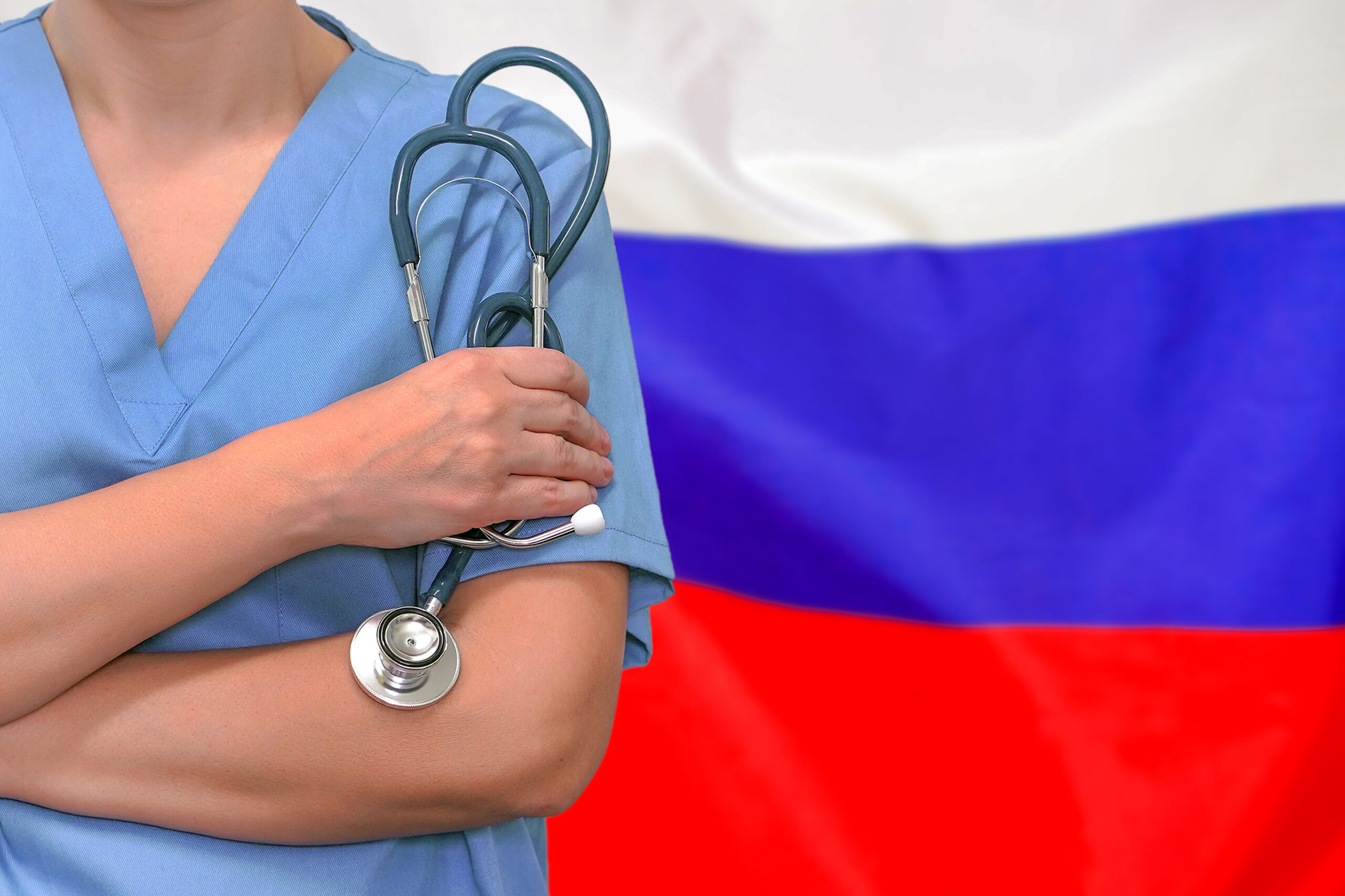
☝️ At a glance
- Language barriers and limited clinical exposure: Most universities teach in Russian, making it difficult for English-medium students. Clinical training is limited due to fewer patient interactions and a heavy focus on theoretical knowledge.
- Struggles with FMGE/NExT exam: Only 15-20% of Russian MBBS graduates clear FMGE due to curriculum differences, leading many students to take extra coaching for better preparation.
- Harsh weather, cultural adjustments, and hidden costs: Students face extreme cold, cultural differences, limited Indian food options, and unexpected expenses beyond affordable tuition fees.
- Recognition and job challenges: Not all Russian universities are recognized by NMC/WHO, and Russian graduates may face difficulties practicing in non-Russian-speaking countries without clearing additional licensing exams.
Introduction to MBBS abroad
Studying MBBS in Russia has become a popular choice for Indian and international students due to affordable tuition fees, no entrance exams, and globally recognized medical degrees. However, while many focus on the advantages, it’s crucial to understand the potential drawbacks before making a decision.

Become a global doctor with MBBS abroad!
Studying abroad can be affordable and stress-free with futureMBBS:
- World-recognized universities with English-taught programs
- On-site support in partner university cities
- Guaranteed placements & internships for hands-on experience
From selecting universities and supporting you with the application process to orientation and finding accommodation – we are at your side.
From language barriers and harsh weather to FMGE/NExT exam difficulties and limited clinical exposure, there are several challenges that students may face. Some Russian medical universities also suffer from infrastructure issues, faculty shortages, and hidden costs, which can impact the quality of education.

This article explores the key disadvantages of studying MBBS in Russia, providing Indian students with a realistic perspective to help them make an informed choice.
1. Language and communication challenges
Russian as the primary language of instruction
In most Russian universities offering MBBS programs, Russian is the primary language of instruction. This presents a significant challenge for international students, especially those who prefer English-medium education. Although some universities may offer English-taught theoretical classes in the early years, students must eventually switch to Russian for clinical practice and patient interactions. Understanding and communicating in Russian becomes essential for effective learning, as medical terminology and patient communication are primarily in Russian.
Moreover, students who lack proficiency in Russian may struggle to fully understand lectures, clinical instructions, and patient histories during hospital rotations. This language barrier can affect their confidence and practical skills, making it crucial for students to dedicate time to learning the language alongside their medical studies.

Study medicine abroad with 100% support!
futureMBBS offers full support to make your dream of studying medicine abroad a reality.
- Hassle-free admission guidance
- Fast-tracked visa processing
- Post-arrival support, including accommodation assistance
Limited English-taught programs
While there are a few universities in Russia that offer MBBS programs entirely in English, the options are limited. Even in these English-medium programs, students eventually encounter the need to communicate in Russian during clinical rotations. This is because most hospitals, where students gain hands-on experience, primarily serve Russian-speaking patients.
The scarcity of fully English-taught programs means that students must carefully choose their university and be prepared for a multilingual learning experience. Those who opt for English-medium courses should ensure that the university provides sufficient language support and that they have a solid plan for improving their Russian language skills over time.
2. Struggles with FMGE/NExT exam for Indian students
Low FMGE pass rates for Russian medical graduates
Indian students pursuing MBBS in Russia often face significant challenges when attempting to clear the Foreign Medical Graduate Examination (FMGE) or the upcoming National Exit Test (NExT). According to data from the National Medical Commission (NMC), the pass rate for Russian medical graduates in FMGE has consistently been low, typically ranging between 15-20%. This low success rate can be attributed to several factors, with the most critical being the curriculum differences between Russian medical education and the Indian medical syllabus.
In Russia, the medical curriculum is designed to meet local healthcare requirements and follows a teaching approach that may differ significantly from the Indian medical education system. This leads to gaps in subjects, clinical skills, and examination patterns, making it difficult for Indian students to adapt and excel in the FMGE/NExT without proper preparation.
Need for additional coaching
To bridge these knowledge gaps and improve their chances of success, many Indian students who complete their MBBS in Russia enroll in additional coaching classes once they return to India. These coaching centers specialize in preparing students for FMGE/NExT, providing targeted instruction on high-yield topics, Indian medical protocols, and the specific exam format.
The need for extra coaching not only adds to the overall cost of obtaining a medical degree but also increases the time required for students to start their medical careers in India. For many, this period of intensive coaching becomes a crucial phase where they relearn core concepts, practice multiple-choice questions, and strengthen their clinical knowledge to meet Indian medical standards.
3. Clinical exposure and education quality
Fewer patient interactions compared to India
One of the major drawbacks for Indian students pursuing MBBS in Russia is the limited clinical exposure they receive during their studies. In many Russian hospitals, priority for hands-on training is given to local Russian students, leaving international students with fewer opportunities to directly interact with patients. This reduced patient interaction can hinder the development of critical clinical skills, such as diagnosing and managing real-world medical cases, which are essential for becoming a competent doctor.
Theoretical vs. practical knowledge imbalance
Russian medical education often emphasizes theoretical knowledge, focusing heavily on textbook learning and written exams. This results in an imbalance between theoretical and practical training. While students may become well-versed in medical concepts, they may struggle with applying this knowledge in real-world scenarios. This lack of practical exposure can be a significant disadvantage when they return to India and are required to manage patients independently.
4. Harsh weather & cultural adjustments
Extreme cold climate affecting health
Russian winters are notoriously harsh, with temperatures in many regions dropping to -30°C or lower. For Indian students who are not accustomed to such extreme cold, this can lead to health problems, including respiratory issues, seasonal depression, and reduced immunity. Additionally, coping with severe winter conditions can be challenging for daily activities, including commuting to classes and hospitals.
Cultural differences & food challenges
Apart from the weather, cultural differences can also be a source of discomfort for Indian students. Language barriers, social norms, and a lack of familiar cultural practices can create a sense of isolation. Food is another major concern, as Indian cuisine is not widely available in most Russian cities. Students may need to adapt to local Russian cuisine, which can be a significant adjustment, especially for those with dietary restrictions.
5. Infrastructure & faculty shortages in some universities
Lack of advanced medical equipment
Not all Russian medical universities are equipped with modern infrastructure. Some institutions lack advanced medical equipment, well-equipped laboratories, and simulation centers essential for high-quality medical training. This can limit students' exposure to modern medical technologies and procedures, leaving them less prepared for clinical practice.
Small faculty & overcrowded classes
In some universities, the student-to-teacher ratio is high, resulting in overcrowded classes. This makes it difficult for students to receive personalized attention from faculty members. Limited faculty members mean that students may not have sufficient access to experienced doctors or professors, which can further affect the quality of their education.
6. Hidden costs beyond affordable tuition fees
Additional expenses for accommodation & living
While Russian medical universities are known for their affordable tuition fees, students often encounter additional expenses. The cost of accommodation, food, travel, and daily living in cities like Moscow or Saint Petersburg can be high. These expenses can significantly increase the overall cost of studying abroad, making it important for students to budget carefully.
Unexpected charges in some universities
In some cases, students have reported that universities increase their fees after admission. These unexpected charges can include additional fees for exams, study materials, medical insurance, or even tuition hikes. Such hidden costs can strain the finances of students and their families.
7. Recognition issues with some Russian medical degrees
Not all universities are WHO/NMC approved
Indian students need to be aware that not all Russian medical universities are recognized by the World Health Organization (WHO) or the National Medical Commission (NMC) of India. Currently, only around 50+ Russian medical colleges are NMC-recognized, which means that degrees from unrecognized institutions may not be valid for practicing medicine in India.
Risk of fake or low-quality universities
There is also a risk of falling into the trap of fake or low-quality universities that may lack proper accreditation. These institutions may offer substandard education, poor infrastructure, and limited clinical exposure, leaving students with a degree that holds little value.
8. Job prospects & licensing challenges abroad
Difficulty practicing in non-Russian speaking countries
Graduates of Russian MBBS programs who wish to practice medicine in other countries often face additional challenges. They must clear licensing exams like the United States Medical Licensing Examination (USMLE) for the USA or the Professional and Linguistic Assessments Board (PLAB) test for the UK. These exams are rigorous, and the Russian medical curriculum may not fully prepare students for them.
Lower preference for Russian graduates in some countries
Some countries have a lower preference for medical graduates from Russia, primarily due to differences in educational standards and perceived quality. This can make it more challenging for Russian MBBS graduates to secure internships, residency placements, or medical jobs abroad, affecting their global career prospects.
Advantages of studying MBBS in Europe
Accredited & recognized universities:
The European MBBS sector offers a number of advantages, including the presence of accredited universities that are highly regarded internationally. European institutions are consistently ranked among the best in the world, making it possible for MBBS degrees to be accepted worldwide.
Quality of education:
Medical schools in Europe are widely recognized for their excellence in teaching, research, and pedagogical techniques. Faculty members are often renowned experts in their respective fields, allowing students to gain a comprehensive understanding of the field.
Diverse cultural experience:
Research in Europe provides an opportunity to immerse oneself in a wide range of cultures, languages and customs. This experience can help to develop your skills and knowledge of cross-cultural health care practices.

English-taught programs:
Many European medical universities provide MBBS programs in English, eliminating language barriers for international students. This makes it easier for students from different backgrounds to pursue their medical dreams.
Clinical exposure & research opportunities:
Europe offers a broad selection of clinical settings and research facilities, allowing medical students to gain practical experience in modern hospitals and clinics.
Safety & quality of life:
Moreover, European countries are well-known for their high standards of safety, healthcare, and quality of life. This allows students to concentrate on their studies without the burden of safety worries or poor living conditions.
Eligibility, exams & fees
To pursue MBBS in Europe, you should be well-aware of everything about the fee structure, entrance and competitive exams, documents required during admission, age limit, etc. Therefore, take advantage of the chance to schedule a free consultation with us to learn more about the exams, fees, and eligibility criteria, if you're thinking about studying medicine in Europe.
How to consider best college to pursue MBBS in Europe?
Choosing a medical school in Europe may appear to be a straightforward decision, but it should be carefully considered as it can have a significant impact on one's life. This is because medical students often set their career goals even before they enter high school, as they develop a passion for helping others.
Additionally, the field of medicine is highly versatile, allowing students to study in any country of the world. Therefore, when narrowing down the medical school options available, it is important to consider factors such as teaching styles, culture, and admission requirements.
How consultations help in your MBBS journey?
Consultations are an essential part of your MBBS journey, and futureMBBS offers a valuable resource in this regard. Our expert team provides insightful guidance on the benefits of pursuing an MBBS degree abroad, walking the students through the intricacies of the admission process.

Our team helps you prepare for various admission requirements, such as exams and interviews, tailored to different European universities. With our well-structured e-learning system and experienced support, you'll be well-prepared for success at every admission stage. Furthermore, our strong track record ensures you're on the path to accessing a world-class medical education.
Moreover, futureMBBS takes care of practical aspects, from finding suitable accommodation to connecting you with fellow students, fostering a sense of community and support. Our team of dedicated experts, including on-site representatives, is committed to providing unwavering support and assistance to help you overcome any academic or personal challenges you may face throughout your MBBS journey.
In essence, consultations like, futureMBBS are your compass, guiding you towards a future rich in knowledge, growth, and opportunity, with unwavering support as you embark on this remarkable adventure.
Conclusion
When it comes to MBBS, deciding where to study is one of the most crucial decisions you'll make in your medical career. Earlier, Russia used to be the go-to place for medical studies, but Europe is becoming a smarter and more attractive option day-by-day. Europe has renowned universities, a top-notch educational system, lots of cultural experiences, along with many practical training opportunities.
Plus, European medical degrees are recognized all over the world, so your qualifications will be respected. When you think about the safety, quality, and English-language programs, Europe is really the way to go for your MBBS dreams.

It can thus be concluded that Europe is the ideal destination for medical studies when compared to studying MBBS in Russia. European universities offer a high level of quality education, international recognition, cultural diversity and student welfare, making them an ideal learning environment for medical students.
Ready to pursue your medical dream in Europe? Get in touch with our experts today and Book a free consultation with us to get started on your journey to success.
Your medical career abroad starts here!
Thinking of pursuing MBBS abroad? Don’t just dream it, do it!
Start your MBBS journey!FREQUENTLY ASKED QUESTIONS
FAQs about "disadvantages of studying MBBS in Russia"
1. Is it mandatory to learn Russian for MBBS studies in Russia?
Yes, even if you enroll in an English-medium program, you will need to learn Russian for clinical practice, patient interactions, and hospital rotations.
2. Can Indian students practice in India after completing MBBS in Russia?
Yes, but you must clear the FMGE (Foreign Medical Graduate Examination) or NExT (National Exit Test) conducted by the National Medical Commission (NMC) of India.
3. Are all Russian medical universities recognized by NMC and WHO?
No, only around 50+ Russian universities are recognized by NMC. It is essential to verify the university’s recognition status before applying.
4. What are the major hidden costs beyond tuition fees for MBBS in Russia?
Hidden costs can include accommodation, living expenses, health insurance, study materials, and unexpected fee hikes by some universities.
5. Is it possible to clear FMGE/NExT without additional coaching after studying MBBS in Russia?
It is challenging due to curriculum differences. Most students opt for additional coaching in India to bridge knowledge gaps and prepare for these exams.




